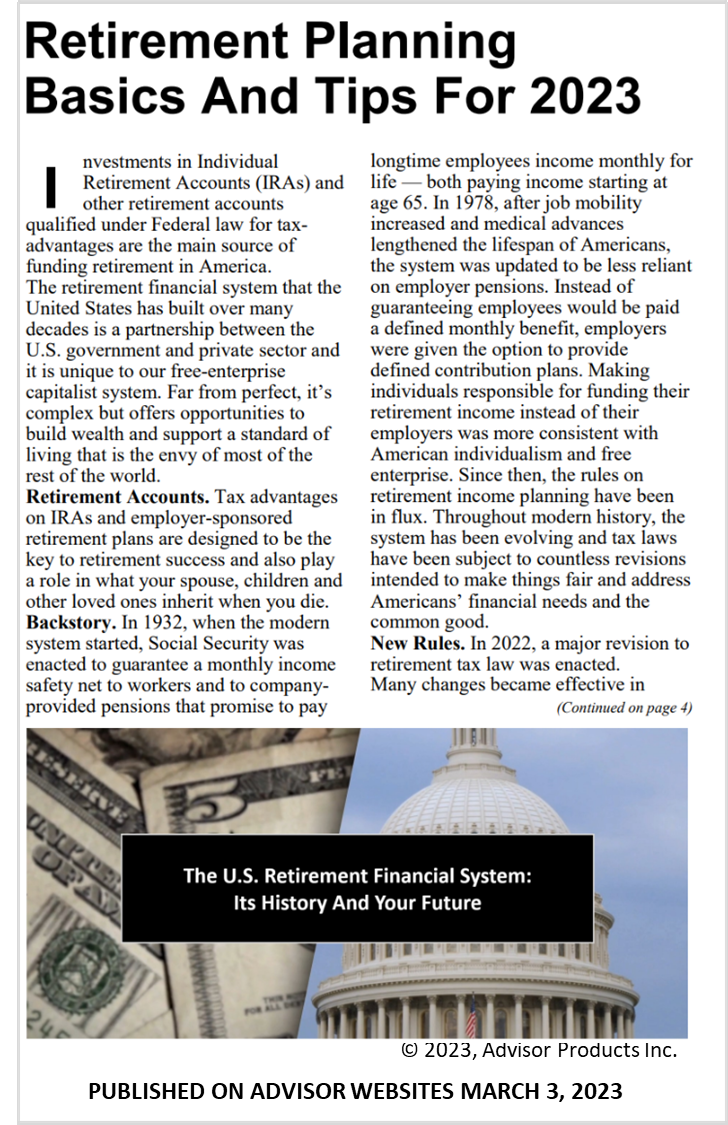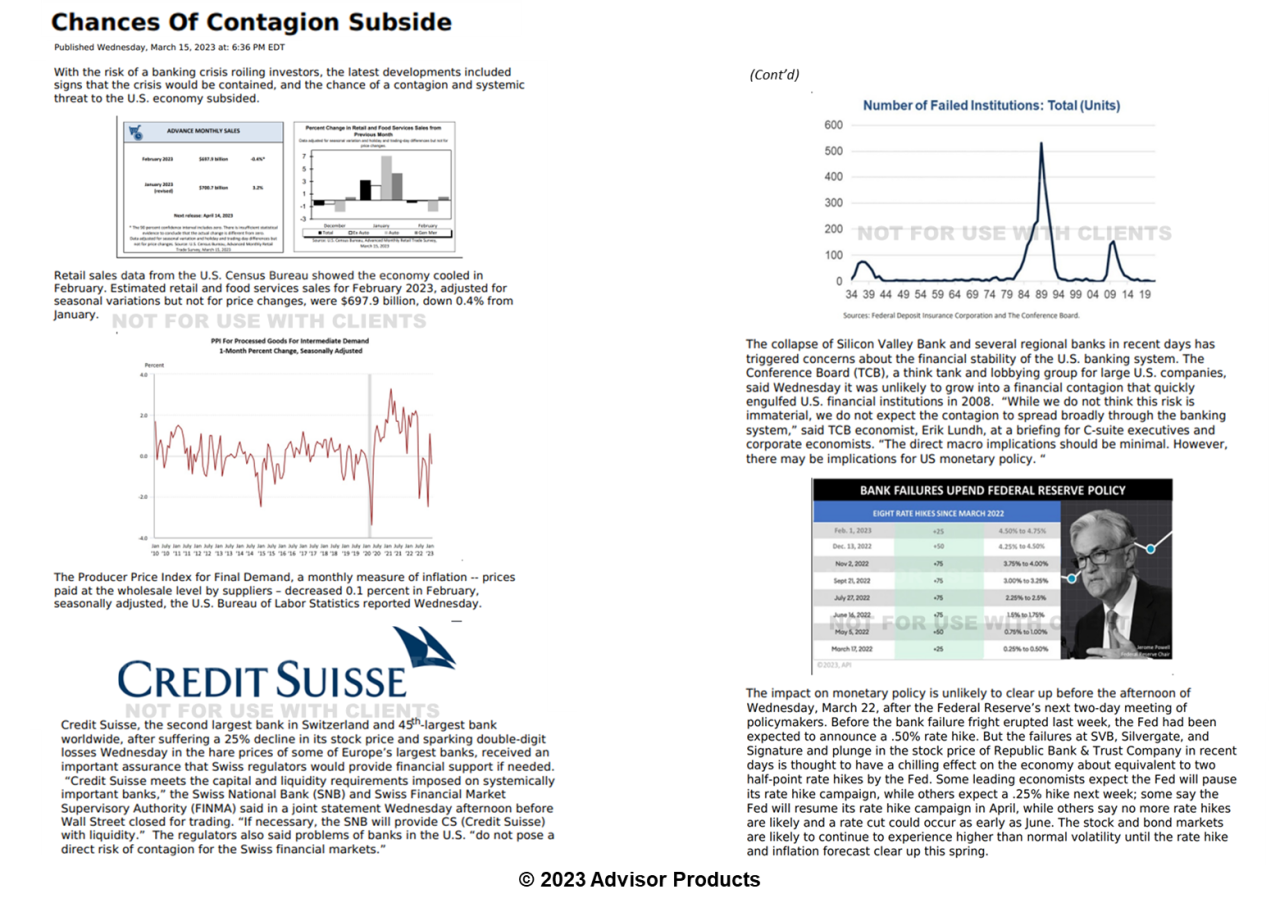- How it works
- Marketing Tools
- Competitive Research
- Finra-reviewed content
- Downloadable Content
- Advisor Education
- Advisor Websites
- Marketing Tips
- Crm Software Integration
- Search Engine Optimization
- Email Marketing Solutions
- Social media Marketing
- Advisor Marketing Videos
- Advisor Print Newsletters
- Advisor Lead Generation
- Expert Market Intelligence
- Branding and Print Materials
- Advisor Blogs
- Advisor Webinars
- Advisor Presentations
- Advisor Client Portals
- Webinars
- Advisor Google And Facebook Ads
- Advisor Public Relations
- About
- Resources
- Login
- Schedule A Demo
Marketing Tips
Search Engine Optimization
Learn the top factors that affect your search listings, tips for website construction, how to develop and organize SEO-friendly content, how to use Google My Business, and the importance of social media on SEO.
Email Marketing Tips
Learn about compliance, how to build your list, get suggestions on how to create a strong cam-paign, master the art of creating a powerful email, get tips on lay-out, learn how to create strong calls-to-action, and get subject line DOs and DON’Ts.
Financial Industry Doesn't Really Get PR
The financial services industry has customarily basked in a glow of reverence as the rest of the economy marveled at an industry that continually brought home relatively steady profits and was the envy of many. That all came to an end almost exactly a year ago and the sector has since weathered so many storms that many wonder whether it will ever again bask in the same type of glow it enjoyed for decades. Interestingly, much of the industry's struggles stem from the fact that it has never really understood PR and how various elements of it can have a big impact on its business.
Just over one year ago, the collapse of Lehman Brothers set forth a series of events that it's safe to say will be remembered for decades after the crisis ends, even in the U.S., which is famous for having a short memory. Since that time, a number of famous names have either been bailed out or forced into the arms of suitors -- sometimes at the strong urging of the U.S. government, which almost no one would have predicted before it all happened. Yet through it all, no one in the industry has really embarked on a concerted push to win over either politicians or the public in general and convince them that lessons have been learned and painful mistakes that are still fresh in the minds of many won't be repeated.
In many ways, the industry's response to the crisis has violated almost every cardinal rule of crisis communications. Executives at major institutions who were on life support a year ago, and in some cases still are, may not have seen things this way, but they were in the midst of the classic corporate crisis. First, there were genuine problems of epic proportions since bad bets on real estate and other sectors had caused capital ratios to dwindle to uncomfortable levels. Secondly, many investment banks took a bath on instruments such as auction-rate securities, once the market for those instruments literally dried up, leaving them worthless.
Yet, through it all including hundreds of billions in government aid, no one has come forth and admitted the mistakes of the past and charted a course for preventing them in the future. Instead, it's been the governments of the world that have sprang to action and started examining a number of new rule changes and procedures to prevent a calamity of the proportions we're currently weathering from occurring again. The latest is happening currently at the G-20 summit, where the U.S. is scheduled this week to present a framework for sustained global economic stability titled "Framework for Sustainable and Balanced Growth."
What the financial industry has yet to grasp is that good PR is indeed good for business. They have yet to understand that an angry public translates into angry customers; people who are more likely to shop a new institution the next time they need a new product their current bank provides. They've forgotten about that old adage that says it's much more expensive to lure a new customer than retain a current one. In fact, the crisis and the way the industry has responded to it is perhaps one of the most clear answers to that age old question of how PR impacts a company's bottom line. For more times than not, failing to practice sound PR principles will prove the biggest cost of all.
Questions?
How and why does the Advisor Products system work?
In today’s times, when consumers have become more demanding and tech-savvy, financial advisors must use content marketing to attract, inspire, engage, and convert their prospective customers.
A good content strategy is focused on developing and distributing consistent, valuable content to engage and retain prospective customers and target audience, via your website. Our content library provides financial advisors with fresh, high-quality financial content that is updated regularly, improving SEO along the way. And our automated e-newsletter and social media tools allow advisors to reach out to clients and prospects in an easy-to-use manner, providing frequent touch points for optimal brand building.
- Differentiate you from competitors
- Expose clients and prospects to your brand message more frequently
- Build an ongoing relationship with customers
- Increase your follows and fans on social media
- Drive more prospects to your website
- Help convert prospects into leads
- Increase number of pages indexed in Google
What products and services do you offer?
Can I buy services if my website is not hosted with you?
What can I expect during the onboarding process?
What if I have questions after my website is built?
Seeing is Believing.
See how easy it is to get started with our all-in-one digital marketing platform that drives leads, encourages referrals and increases client engagement.
SCHEDULE A DEMO






